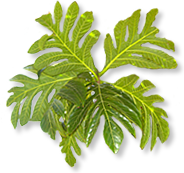Nutrition of Tropical Crops
TPSS 610
Faculty:
Susan Miyasaka
Semesters taught:
Spring 2016
Goals:
- Teach principles of ion transport and plant nutrition
- Teach how to access and critically evaluate current literature in ion transport and plant nutrition
- Provide experience in writing research proposals
- Provide hands-on experience in conducting a plant nutrition experiment and writing results for publication
- Provide experience in oral presentation of research results
Skills and knowledge to be acquired:
Mineral nutrition of plants in relation to plant metabolism, mechanisms of ion uptake, long-distance transport of solutes and interactions at the root-soil interface. Special emphasis on problems associated with tropical crops.
Pre-requisites:
BOT 470 and TPSS 450, or permission of instructor
Course organization:
- Homework assignments and class discussions
- One mid-term examination
- One term paper on a research proposal
- One oral presentation on laboratory experiment
- One research paper on laboratory experiment
- One final examination
Other:
Laboratory Experiment
Sign-up as pairs to conduct this laboratory experiment, which will take place at the Pope Laboratory greenhouse. Nutrient deficiencies and/or toxicities will be induced on taro grown in hydroponic solutions. Nutrient solutions with the appropriate concentrations of the element will be added.
Your first assignment will be to plan the experiment that you and your partner will carry out. Each group of students will be given approximately 24 pots (depending on number of students in class). With this number of pots, you must decide on the number of treatments and replicates. Suggested nutrients to work on are: P, K, S, Zn, or B. Other nutrients have been studied.
During the experiment, pH of the nutrient solutions will be monitored weekly. Also, non-destructive measurements of chlorophyll will be taken using a Minolta chlorophyll meter. At harvest, leaf areas, number of leaves, and fresh and dry weights will be determined. Observations of nutrient deficiency and toxicity symptoms should be recorded. There are sufficient funds to have ADSC carry out one set of nutrient analyses per plant (or pot); these tissue analyses will include total N, P, K, Ca, Mg, Na, Fe, Mn, Zn, B, Cu, and Al. It will cost extra to analyze for Cl or S. You will need to grind tissue samples and submit to ADSC for analyses.


